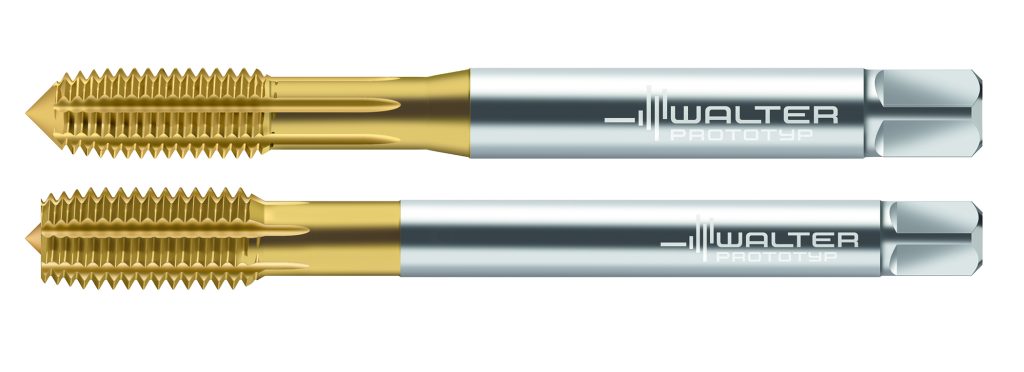TC410 Advance HSS-E Thread Former
TC410 Advance HSS-E Thread Former
Walter has introduced the TC410 Advance HSS-E thread former, a versatile new TiN-coated threading tool that's cost-effective even for small and medium batch sizes. It can be used universally for blind-hole and through-hole threads in most materials having a primary application in ISO material groups P, M and N and ISO K and S as a secondary application.

Walter has introduced the TC410 Advance HSS-E thread former, a versatile new TiN-coated threading tool that's cost-effective even for small and medium batch sizes. It can be used universally for blind-hole and through-hole threads in most materials having a primary application in ISO material groups P, M and N and ISO K and S as a secondary application.
Key advantages for using the TC410 Advance thread former are superior performance, reduced torque and longer tool life thanks to new geometry and a post-treatment after the coating process. The post-treatment provides an extremely smooth surface on the tool. Having a smooth surface reduces friction between the tool and the workpiece and consequently the amount of heat generated. Minimizing the production of heat reduces wear and thus increases the useful life of the tool.
Walter offers the new TC410 Advance in two variants: With lubrication grooves for applications that need help getting coolant to the area where the forming is happening or without lubrication grooves for when the coolant is already pooled in the hole. Deeper threads up to 3.5 × D can be produced in certain materials with these tools. Also offered are a wide variety of configurations covering thread styles, thread tolerances and shank standards, including an option for LH threads.
Its excellent price-to-performance ratio makes the TC410 Advance an attractive choice for users with medium to large batch sizes. This is because it can produce more threads with the same tool at a reasonable price. With its combination of productivity and cost saving features the new tool will find ready application in the automotive and energy industries along with general metalworking.
The Advance lineup of products is one of three categories to Walter thread formers: Advance, Perform, Supreme. The Advance tools are products which are efficiently balanced between price and performance. The Perform tools are products that provide an economical solution with focused importance on price. The Supreme designation indicates the highest level of technology and performance available.





